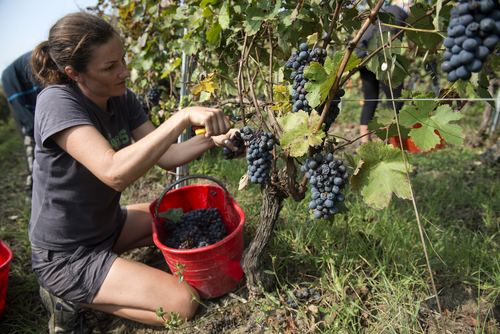A recently published paper in the Journal of Asthma entitled “Early farm residency and prevalence of asthma and hay fever in adults” stated that living on a farm during the early years of life may protect women from developing asthma at the adulthood, but not men. This new study builds on increasing evidence that farming conditions can have a protective effect in asthma.
Asthma is an inflammatory condition of the lung where mucus buildup induces narrowed and swollen airways. Over 300 million people worldwide live with asthma, resulting in an average of 300,000 deaths per year. Signs and symptoms of asthma include coughing, difficulty in breathing, frequent respiratory infections, hyperventilation, and shortness of breath, especially at night. Patients with asthma may or may not experience symptoms. Some patients experience marked and persistent symptoms, while in others the symptoms may occur in episodes as a response to triggers like allergens. On the other hand, hay fever results from an overreaction of the immune system of the body towards allergens present in air. Some symptoms of hay fever may resemble those observed for asthma including sneezing, coughing, and breathing through the mouth. Other symptoms like fatigue; headaches and red, watery and itchy eyes can emerge separately. It is worth noting that in western countries, 10 to 30% of population aged 20 to 40 years old reportedly suffer from hay fever.
It is believed that environmental factors may contribute to the development of both asthma and hay fever, which influence both severity and responsiveness to treatment. This includes allergens like pollens, dust, air pollution, cigarette smoking, and chemicals among others. On the other hand, recent studies suggested that asthma and hay fever are both positively and negatively associated with farming lifestyles in adulthood and early farming life might be a determining factor in having the disease in adulthood. To confirm these claims, the researchers investigated the importance of the different periods of farm residency in development of asthma and hay fever during adulthood.
Researchers performed a survey with total of 7,148 adult participants from the rural areas of Saskatchewan in Canada to collect information related to history of asthma and hay fever. For a detailed survey, the researchers set up a questionnaire containing five key questions related to farm residency history: i) first year of life only, ii) currently living on a farm, iii) both first year of life and currently living on a farm, iv) other farm living, and v) no farm living. Afterwards, the data were analyzed and adjusted using generalized estimating equations.
The results suggested that 30.6% of the participants declared living on a farm during first year of life, 34.4% recorded both early-in-life and current farm residency, and 17.4% of participants declared no farm living at all. Furthermore, the data illustrated that among all participants, 8.6% suffer from asthma, 12.3% from hay fever and women were more affected than men. The collected data further indicated that women who lived on a farm during early life had decreased risk for asthma and hay fever. By contrast, male participants who declared a current farm residency showed enhanced risk for asthma.
In conclusion, these findings confirmed that that residing on farms during the first years of life could prevent asthma from emerging in adulthood for women. However, the data did not confirm that association among men.
“Farm residency in the first year of life shows a protective effect for adult asthma and hay fever that appears to differ by sex,” Donna C. Rennie, PhD,of the Canadian Centre for Health and Safety in Agriculture at University of Saskatchewan in Canada, and colleagues wrote.
Photo: Paolo Bona / Shutterstock.com

